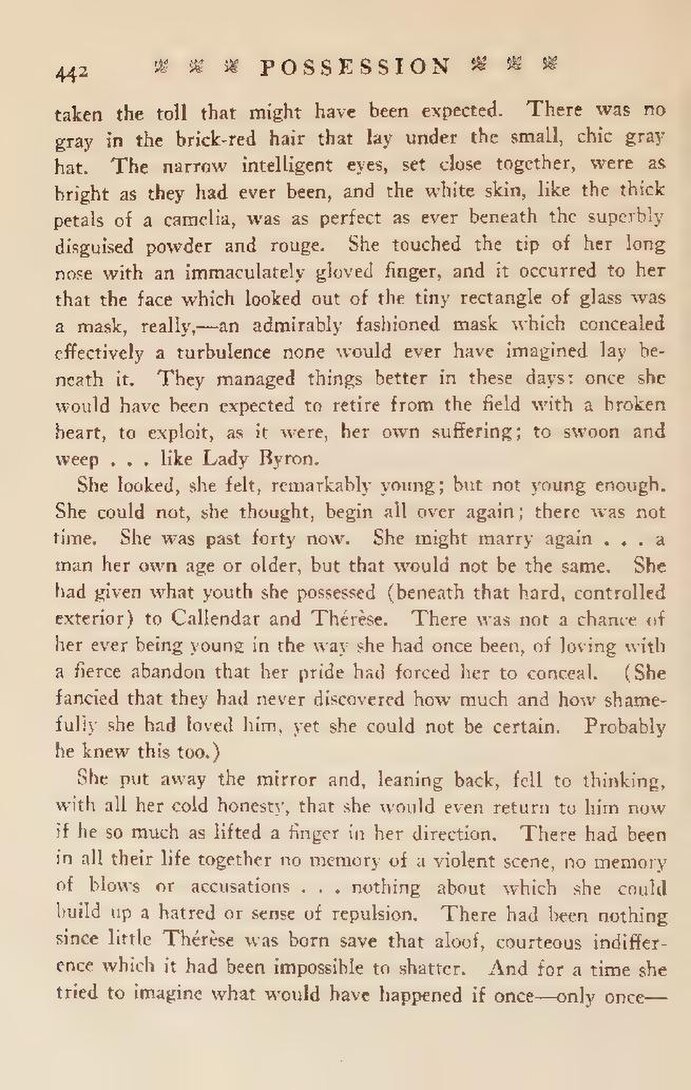taken the toll that might have been expected. There was no gray in the brick-red hair that lay under the small, chic gray hat. The narrow intelligent eyes, set close together, were as bright as they had ever been, and the white skin, like the thick petals of a camelia, was as perfect as ever beneath the superbly disguised powder and rouge. She touched the tip of her long nose with an immaculately gloved finger, and it occurred to her that the face which looked out of the tiny rectangle of glass was a mask, really,—an admirably fashioned mask which concealed effectively a turbulence none would ever have imagined lay beneath it. They managed things better in these days: once she would have been expected to retire from the field with a broken heart, to exploit, as it were, her own suffering; to swoon and weep . . . like Lady Byron.
She looked, she felt, remarkably young; but not young enough. She could not, she thought, begin all over again; there was not time. She was past forty now. She might marry again . . . a man her own age or older, but that would not be the same. She had given what youth she possessed (beneath that hard, controlled exterior) to Callendar and Thérèse. There was not a chance of her ever being young in the way she had once been, of loving with a fierce abandon that her pride had forced her to conceal. (She fancied that they had never discovered how much and how shamefully she had loved him, yet she could not be certain. Probably he knew this too.)
She put away the mirror and, leaning back, fell to thinking, with all her cold honesty, that she would even return to him now if he so much as lifted a finger in her direction. There had been in all their life together no memory of a violent scene, no memory of blows or accusations . . . nothing about which she could build up a hatred or sense of repulsion. There had been nothing since little Thérèse was born save that aloof, courteous indifference which it had been impossible to shatter. And for a time she tried to imagine what would have happened if once—only once—
